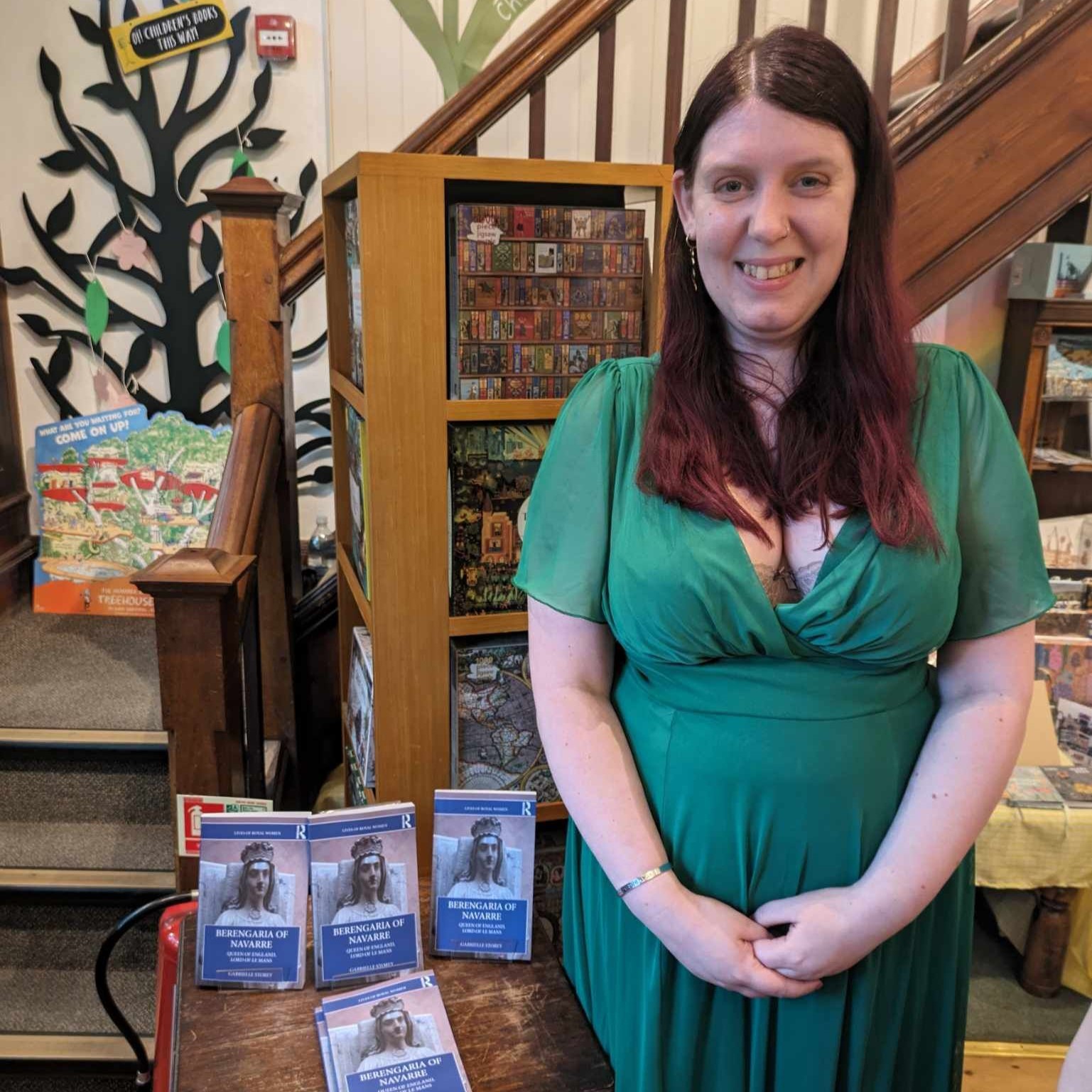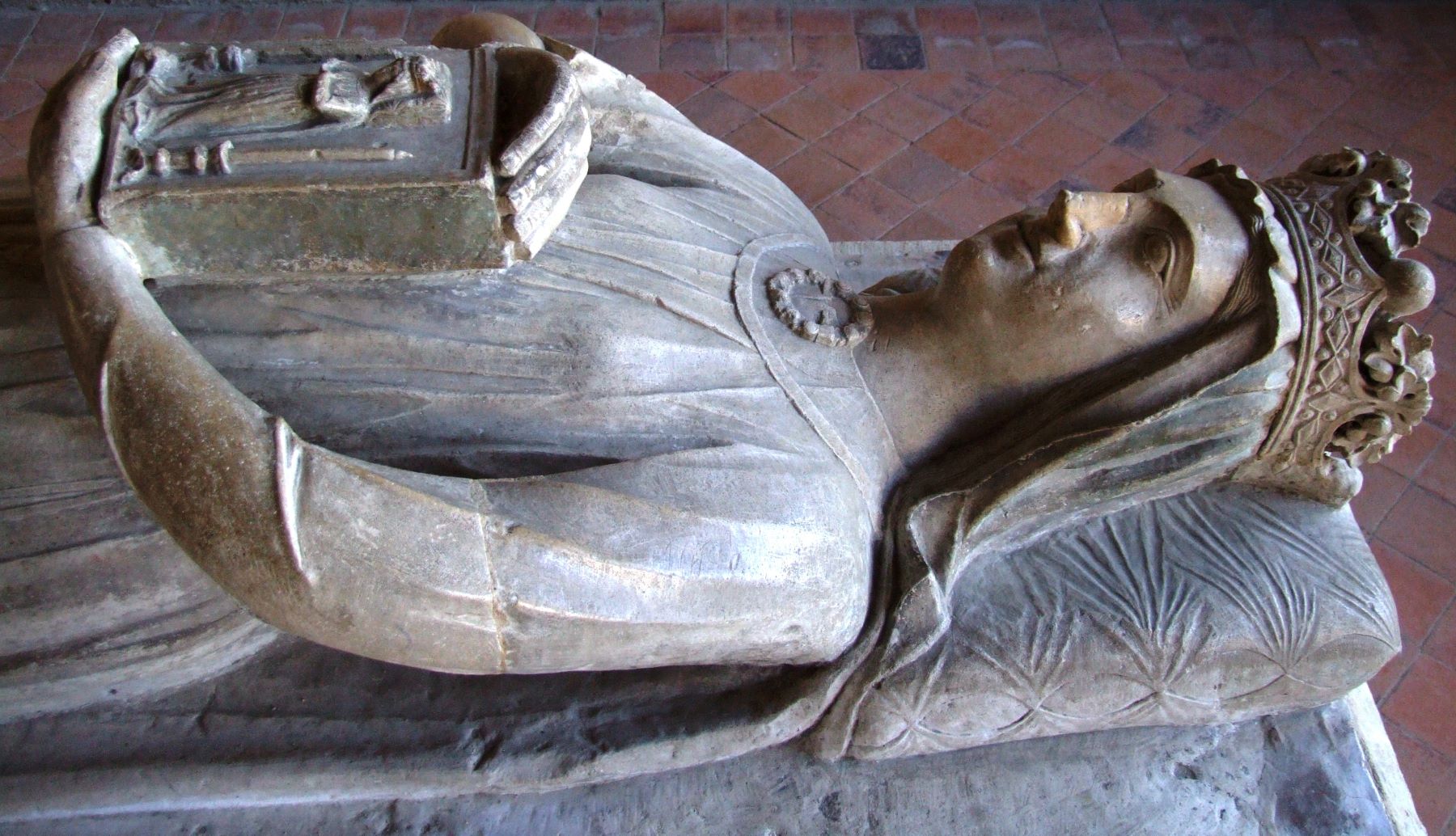
The twelfth and thirteenth centuries were a time of crusade, conquest, and political intrigue. But what happened to the queen of Richard the Lionheart, champion of the Third Crusade?
This new biography, Berengaria of Navarre, Queen of England, Lord of Le Mans by Dr Gabrielle Storey (pictured above), Visiting Research Fellow in the School of History, Archaeology, and Philosophy at the University of Winchester, brings to life one of England’s most often forgotten queens.
A princess of Navarre (a medieval kingdom in northern Spain), Berengaria married Richard en route to the Third Crusade in 1191. She spent two years in the Holy Land whilst Richard waged war alongside the king of France against Saladin and his Muslim forces. But for Berengaria this was a time where we have little record or memory of her: for her time as queen consort, 1191-99, she never came to England, and appears to have been neglected by one of England’s most famous of kings.
However, as Gabrielle uncovers, her widowhood and life as Lord of Le Mans (1204-30) is a time where we not only see Berengaria flourish and come into her own as a powerful lord, but also one where we can see female rulership at a time of dynamic political change.
"Berengaria’s story is one of survival and determination," Gabrielle says. “She was roundly ignored or neglected by her marital family and most of her natal family, so when Richard dies in 1199, she’s left with few choices. She takes control of the situation and establishes a life for herself in Le Mans, and continues to exercise power with growing confidence over the decades."

Exploring Le Mans – better known for its 24-hour race circuit rather than as a medieval city – allowed Gabrielle to place herself in Berengaria’s shoes. She has visited the city several times for research, not only for the archives but also to visit Berengaria’s effigy and the recently-restored tomb (pictured) at the Abbey de l’Épau, on the outskirts.
"Going to l’Épau has always been such a moving experience for me,” said Gabrielle. “It was Berengaria’s decision to found an abbey there and it was where she chose to be buried. This was where she wanted to end her incredible life, not back in Navarre or elsewhere in her marital family’s domains.”
Gabrielle’s research for the book started during her doctorate at the University of Winchester, where she completed a PhD in History on medieval queenship, co-rulership, and sexuality, comparing the lives and careers of four Angevin royal women.
Additionally, she has edited a collection, Premodern Ruling Sexualities. Representation, Identity, and Power (Manchester University Press) which will also be published in June.
Gabrielle held a sold-out launch night for Berengaria of Navarre at Winchester bookshop P&G Wells this week which was attended by members of the public as well as colleagues and students.
Gabrielle will be giving several talks on Berengaria and her family over the next few months, including at Winchester’s Heritage Open Days Festival in September.
She also appeared on an episode of the podcast History Hack to discuss the book which can be heard here.
Berengaria of Navarre is published by Routledge priced £35.99 in paperback (for 20 per cent off from Routledge, use discount code EFLY01).
Back to media centre